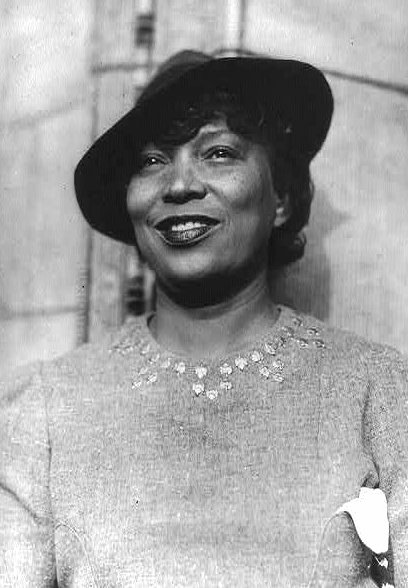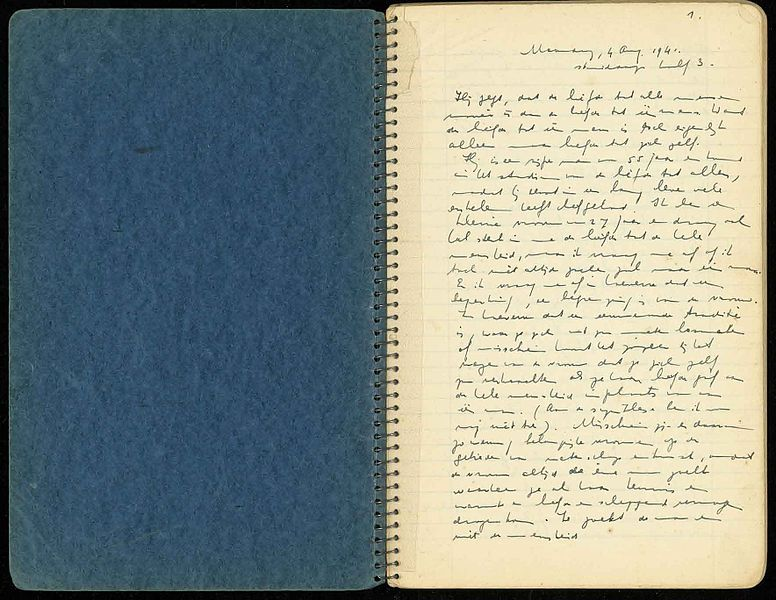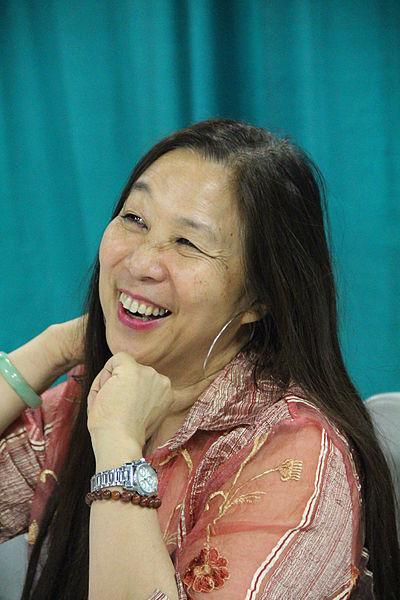International Women’s Day is coming up on March 8th and the University of Waterloo’s Women Centre will be celebrating International Women’s Week starting March 5th. On Monday the 5th, read Kate’s blog post about books that feature compelling female protagonists!
Here are a few of my personal favourite influential female authors. This list is by no means exhaustive and I had to pare it down quite a bit! Tell us who your favourite female authors are on social media and on our Writing and Communication quilt on the 2nd floor of South Campus Hall (SCH).
Zora Neale Hurston

Hurston was an incredibly important American figure of the Harlem Renaissance. Not only was she an incredible writer of four novels and over 50 short stories, plays, and essays, she was also a folklorist, ethnographer, and anthropologist. She tried to preserve cultures and dialects that came out of the South. Although her most famous novel has received some fair criticisms, Their Eyes Were Watching God was a seminal text because she tried to write in representative dialects, demonstrate the struggles that were faced by black people, and maintain cultures and traditions. Hurston captured not only her character’s individual voices and dialects (representative of those she documented), but also the power of voice, and how people can use their voice in order to gain power when previously powerless. If you are interested in learning more about Zora Neale Hurston, try reading her autobiography, Dust Tracks on a Road, or Mules and Men, which is an autoethnographical collection of African American folklore. Some pieces are written by her and some by others.
I actually found one of the most interesting pieces of writing in relation to Hurston to be the 1975 article “Looking for Zora” by Alice Walker (author of the award-winning novel The Color Purple, among many others). The article discusses the difficulties Hurston faced as a black woman in the South in the early 1900s and the journey that Walker went on to find Hurston’s burial place. She finds an unmarked grave in the middle of a field--symbolic of how Hurston and her brilliant works were overlooked, disparaged, and forgotten.
Anne Frank and Etty Hillesum
Another powerful female author was Anne Frank, who wrote in her diary of hope and love in a seemingly hopeless time. In my opinion, one of the most powerful quotes from the Diary of a Young Girl is “It's really a wonder that I haven't dropped all my ideals, because they seem so absurd and impossible to carry out. Yet I keep them, because in spite of everything I still believe that people are really good at heart." I think that Anne Frank is an incredibly strong female author because, despite her age and situation, her writing was incredibly insightful and moving.

Another powerful female writer who wrote during the holocaust was the lesser known Etty Hillesum. I am currently reading the Modern Spiritual Master’s Series edition of her Essential Writings. Like Anne Frank, Hillesum, also known as “the thinking heart of the barracks,” was killed in a concentration camp and her diary entries were published after her death. She, too, wrote of love and understanding: “I know that a new and kinder day will come […] And there is only one way of preparing the new age, by living it even now in our hearts.” What I find most compelling about these two authors is their way of writing down honest thoughts openly and dwelling in compassion, rather than what would be an understandable anger.

Marilyn Chin
Marilyn Chin is a poet, novelist, anthologist, translator, and educator. I was first struck by her power as a writer when I read the poem "How I Got That Name," in which she speaks of her experience of assimilation when she and her family moved from Hong Kong to Oregon. In this poem, she struggles with her parents’ embrace of American culture and her new western name—Marilyn. In Contemporary Women Poets she describes her own work as being “steeped with the themes and travails of exile, loss and assimilation." She is an author unafraid of tackling difficult subjects with passion and openness. Chin describes her experience of assimilation, being an immigrant, and struggling with intersectional identities, while also being humorous and using wordplay.

Di Brandt
Di Brandt is a Canadian poet, who grew up in a traditionalist Mennonite community. I find her work particularly powerful and brave because of the consequences she faced when questioning the beliefs of her community. She is most well known for her novel questions I asked my mother. This text has a particular shock value, which prompted someone in Tim Hortons to ask me with a look of shock and concern if I was reading it for school. Although the poems can be affronting, at its core, the collection is the author’s attempt to understand her community and her family by asking questions. Brandt didn’t hold back in her writing, which led to personal, poignant poetry and also to the author being alienated from her community.
I also find Brandt to be an important and influential writer due to the breadth of topics she covers. I was particularly moved and inspired by her poems that tackle environmental destruction, as in her poem “Zone: le Détroit”:
Another wonderful poet who covers a wide range of topics and writes moving environmentalist poetry is Lucille Clifton. If you like the poem above, check out her poem "The Killing of Trees," from Quilting (a wonderful book of poetry centred around the themes of community and connection). Marilyn Dumont is also a wonderful poet who writes poems about the land. She is a Cree/ Métis poet who is most well known for her first collection A Really Good Brown Girl.